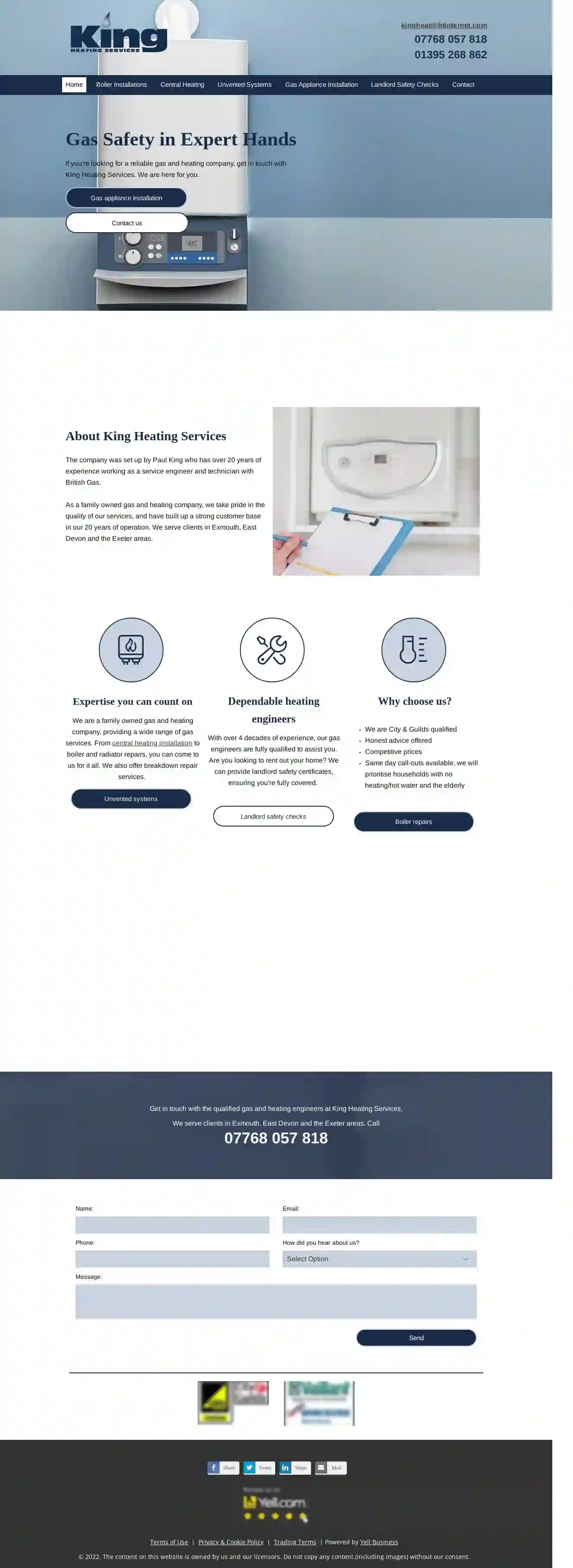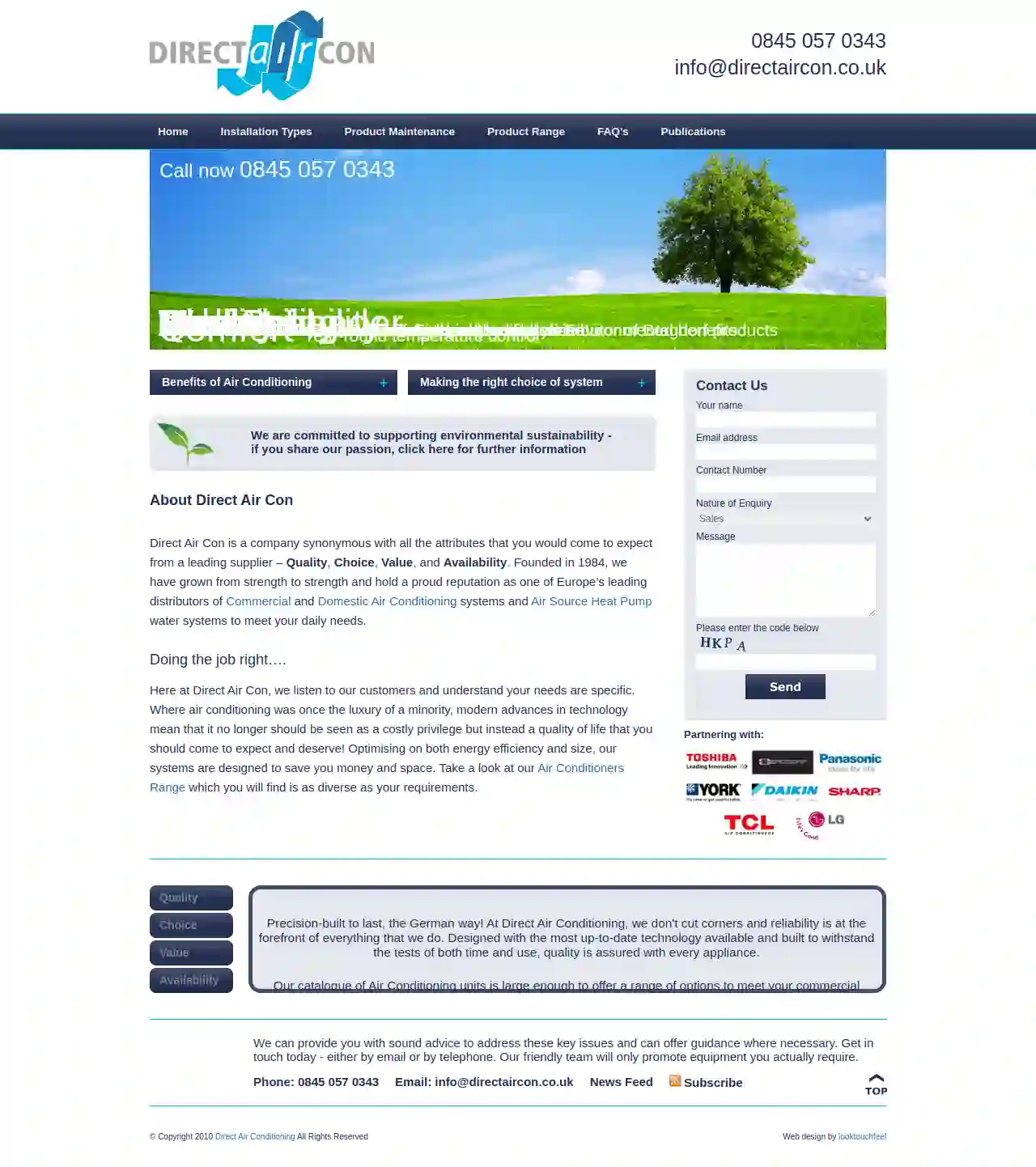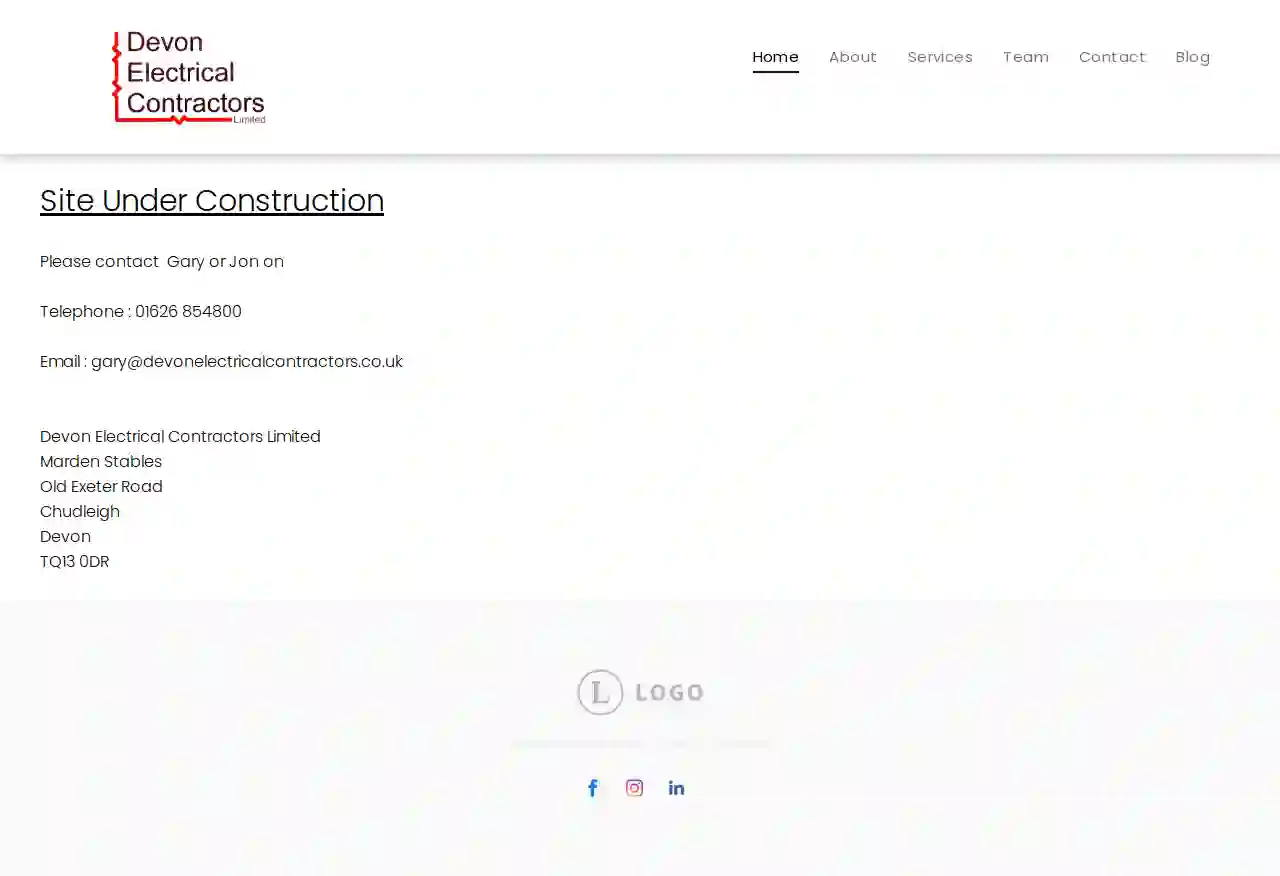Emergency HVAC Ilfracombe
Find the best After Hours HVAC in Ilfracombe
Receive 3 FREE Emergency HVAC Service quotes for your project today! Compare profiles, reviews, accreditations, portfolio, etc... and choose the best service.

J Searle & Son
4.942 reviews43 Fore Street, Weech Corner, Buckfastleigh, TQ11 0AA, GBW J Searle & Son Ltd is a family-run business established in 1974, serving the South Hams and surrounding areas. We offer a wide range of appliances, from washing machines and refrigerators to dishwashers and cookers. Our experienced team is dedicated to providing excellent customer service and expert advice. We pride ourselves on our competitive prices and comprehensive after-sales service. We are committed to offering a personal touch and ensuring that our customers receive the best possible experience.
- Services
- Why Us?
- Accreditations
- Gallery
Get Quote
Heat Pump Servicing
Pilton Causeway, Barnstaple, The Hub, EX32 7AA, GBRenewable Energy Services Barnstaple Expert Maintenance, Repair, & Servicing For Your Renewable Energy Installations Welcome to HPSL, the leading company for renewable energy servicing in Barnstaple and throughout the surrounding areas of the South West.Our versatility and expertise allow us to work on a variety of different green power and heating sources. These include solar panels, biomass boilers, air and ground source heat pumps, aircon, and ventilation systems. If you need any of these systems repaired, checked, or serviced, our expert team of engineers have you covered at HPSL.With over 10 years in the industry, we have a wealth of experience in helping our customers get the most out of their green installations. Put our expertise to your best use and contact us to carry out all the checks and fine-tuning needed for optimal energy output in your home.Our expert team is Refcom registered and CSCS qualified to demonstrate the quality of our work and guarantee your peace of mind. When you hire with us, your property and its installations are in safe hands. More than that, we pair our team’s stellar qualifications with comprehensive warranties and insurance on all of our work.We work with the industry’s top manufacturers in green energy solutions. These include Daikin, NIBE, Okofen, and Froling. We also stock parts for quick and efficient repairs.Contact us today to book an appointment. Contact Us We Are Hiring In Barnstaple & Exeter About HPSL With over ten years in the trade, we’ve seen it all when it comes to renewable energy. Find out more about how we keep our customers' systems working efficiently all year round. Find Out More Air Source Heat Pump Services Our team service, repair, and maintain air source heat pumps for both homes and businesses. We’ll also fine-tune your set-up for peak performance. Find Out More Ground Source Heat Pump Services Ground source heat pumps need routine servicing to maximise performance. Find out more about GSHPs and how we can help. Find Out More Solar Panel Services Photovoltaic solar panels transform sunlight into electricity. They provide a source of clean and renewable energy to power both homes and businesses. We ensure it does so effectively. Find Out More Solar Thermal Services Thermal solar panels use the sun's heat to warm water and wet heating systems. Regular maintenance prevents costly repairs. Find out more here. Find Out More Biomass Services Biomass boilers and stoves are an eco-friendly alternative to oil and coal and require annual servicing for optimum performance. Our team have
- Services
- Why Us?
- Accreditations
- Gallery
Get Quote
Unitherm Heating Systems
4.73 reviewsOsprey Road, Sowton Industrial Estate, Units C1 & C2 Sanderling Court, Exeter, EX2 7PJ, GBUnitherm UK Ltd is a leading provider of air source heat pumps and underfloor heating solutions. With a team of experts, we offer a range of services including design, installation, and maintenance of air source heat pumps. Our mission is to provide high-quality, energy-efficient solutions that meet the needs of our customers. With a strong focus on customer service, we strive to deliver exceptional results and build long-term relationships with our clients.
- Services
- Why Us?
- Accreditations
- Our Team
- Gallery
Get Quote
Simon Turner Showrooms
4.670 reviewsUnit 30, Dinan Way Trading Estate, Exmouth, EX8 4RS, GBWelcome to Simon Turner Showrooms, Exmouth's leading specialists in all aspects of bathrooms, kitchens, and fireplaces. Our expert team of designers and installation professionals are fully qualified and highly experienced to provide the full service, catering for all of your mains/LPG gas and electricity maintenance and repairs. Whether it's a boiler upgrade, a stylish new woodburning stove installation or a full new kitchen or bathroom design, supply and fit, Simon Turner are the number one choice across East Devon and the South West.
- Services
- Why Us?
- Accreditations
- Our Team
- Testimonials
- Gallery
Get Quote
JTR Refrigeration
55 reviewsUnit 4 Harrier Court, Exeter, EX5 2DR, GBSince 1998, our mission has been to deliver an all-encompassing service to food manufacturers, distributors and retailers across the South West and beyond. We pride ourselves on our ability to provide a professional service with a focus on interpretation and the outstanding delivery of customer requirements.
- Services
- Why Us?
- Gallery
Get Quote
King Heating Services
515 reviewsExmouth, GBKing Heating Services is a family-owned gas and heating company with over 20 years of experience. We provide a wide range of gas services, including boiler installations, repairs, and maintenance. Our team of fully qualified gas engineers are dedicated to providing expert solutions to our clients in Exmouth, East Devon, and the Exeter areas. We pride ourselves on our commitment to quality, honesty, and competitive pricing. Our services include boiler installations, central heating installation, boiler and radiator repairs, breakdown repair services, and landlord safety checks. We are City & Guilds qualified and offer same-day call-outs for households with no heating or hot water, as well as priority service for the elderly.
- Services
- Why Us?
- Gallery
Get Quote
GASLEC Ltd
4.7159 reviewsExeter, GBEstablished since 2001, GASLEC is a local and independent gas, heating and electrical company. Our team of expert technicians are Gas Safe Register members, NAPIT and NICEIC approved, and members of the Chartered Institute of Plumbing and Heating Engineering (CIPHE). We offer a range of services including boiler installation, repairs, and servicing, as well as electrical services such as rewiring, domestic electrical repairs, and electrical testing. We also provide plumbing services, including radiator installation, thermostat and controller installation, and underfloor heating installation. Our team is dedicated to providing fast, reliable, and professional services to our customers.
- Services
- Why Us?
- Accreditations
- Our Team
- Testimonials
- Gallery
Get Quote
Bristowe Refrigeration Ltd
4.58 reviews34 Buller Road, Exeter, EX4 1DA, GBRefrigeration company Exeter. Offering affordable refrigeration, air conditioning, heat pumps, and commercial catering services. Looking for professional and affordable refrigeration, air conditioning and HVAC engineers? Bristowe Refrigeration & Air Conditioning Ltd are experts in domestic and commercial refrigeration, air conditioning, heat pumps and commercial catering equipment. We offer an unparalleled service to customers throughout Exeter, Devon, Somerset and Cornwall. Established in 1979, we are a family run business offering a fast response to all your refrigeration and air con and commercial kitchen needs. So, if you are looking for a refrigeration company in Exeter, call us for the best service at the best price.
- Services
- Why Us?
- Testimonials
- Gallery
Get Quote
Air Conditioning - Direct Air Con
1.67 reviewsExeter, GBDirect Air Con is a leading supplier of commercial and domestic air conditioning systems and air source heat pumps. Founded in 1984, we have a proud reputation for quality, choice, value, and availability. We understand that your needs are specific, and we offer a range of options to meet your requirements. Our systems are designed to save you money and space, optimising on both energy efficiency and size. We offer a variety of wall-mountable models, including Bergdorf, TCL, Blue Fin, and Cellarmaster, as well as free-standing Bodner & Mann units. Our heat pump models provide dual functionality, offering cooling in the warmer months and heating in the winter. We also offer a price guarantee, ensuring you won't be beaten on price for any like-for-like appliance. We deliver and fast! Orders can be placed 7 days a week. We hold a stock range large enough to cater for any sized order, covering all your cooling and heating needs.
- Services
- Why Us?
- Gallery
Get Quote
Devon Electrical Contractors Ltd
51 reviewsOld Exeter Road, Marden Stables, Chudleigh, TQ13 0DR, GBDevon Electrical Contractors Limited is a company based in Chudleigh, Devon. They are currently working on updating their website. You can contact Gary or Jon on 01626 854800 or by email at [email protected].
- Services
- Why Us?
- Gallery
Get Quote
Over 12,692+ HVAC Businesses onboarded
Our HVAC companies operate in Ilfracombe & beyond!
HVACCompaniesHub has curated and vetted the Best HVAC Companies in and around Ilfracombe. Find a top & reliable pro today.
Frequently Asked Questions About Emergency HVAC Services
- A sulfurous odor
- Hissing or whistling sounds near gas lines or appliances
- Blowing dirt or bubbles in standing water
- Dead or discolored vegetation near gas lines
- Physical symptoms like dizziness, nausea, or headaches
- MERV Rating: The Minimum Efficiency Reporting Value (MERV) indicates the filter's ability to trap particles. Higher MERV ratings mean better filtration.
- Filter Size: Make sure you select the correct size filter for your HVAC unit.
- Filter Type: Different types of filters are available, including pleated filters, HEPA filters, and electrostatic filters.
- Your Needs: Consider your indoor air quality needs. If you have allergies or pets, a higher MERV filter may be beneficial.
- Change or clean air filters every 1-3 months.
- Clear debris from around the outdoor unit.
- Check and clean the evaporator coil (if accessible).
- Inspect refrigerant lines for leaks.
How do I know if I have a gas leak?
Are emergency HVAC services more expensive?
How do I choose the right HVAC filter?
How do I maintain my air conditioner?
How do I know if I have a gas leak?
- A rotten egg smell odor
- Hissing or whistling sounds near gas lines or appliances
- Blowing dirt or bubbles in standing water
- Dead or discolored vegetation near gas lines
- Physical symptoms like dizziness, nausea, or headaches
Are emergency HVAC services more expensive?
How do I choose the right HVAC filter?
- MERV Rating: The Minimum Efficiency Reporting Value (MERV) indicates the filter's ability to trap particles. Higher MERV ratings mean better filtration.
- Filter Size: Make sure you select the correct size filter for your HVAC unit.
- Filter Type: Different types of filters are available, including pleated filters, HEPA filters, and electrostatic filters.
- Your Needs: Consider your indoor air quality needs. If you have allergies or pets, a higher MERV filter may be beneficial.
How do I maintain my air conditioner?
- Change or clean air filters every 1-3 months.
- Clear debris from around the outdoor unit.
- Check and clean the evaporator coil (if accessible).
- Inspect refrigerant lines for leaks.